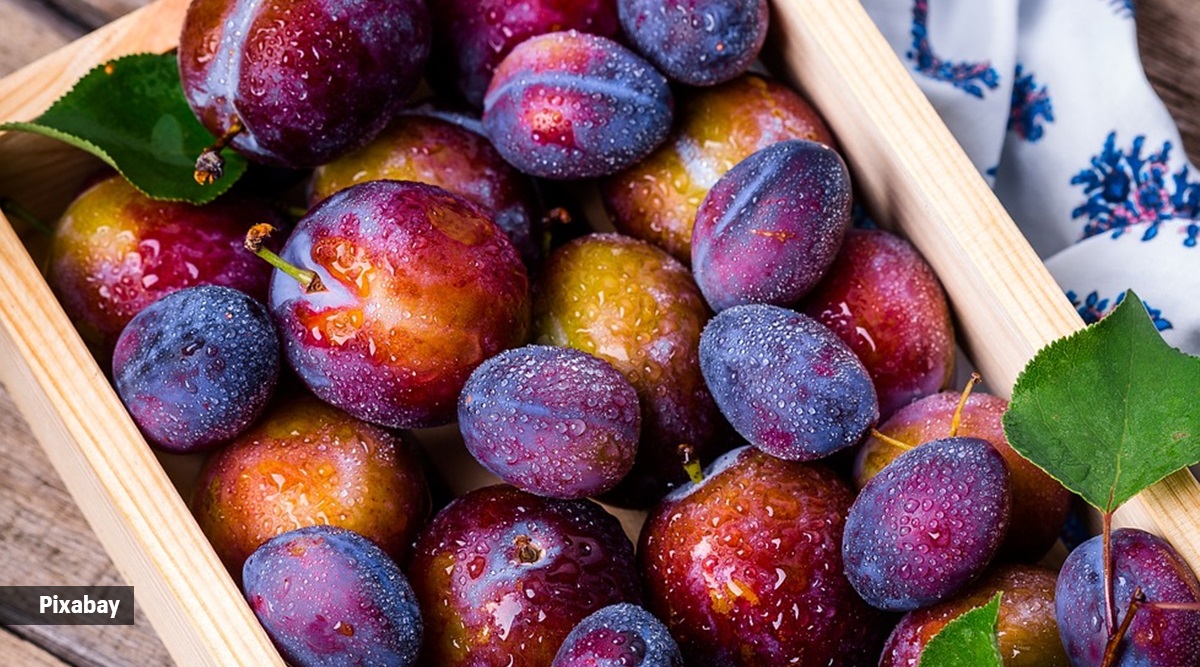[ad_1]
Online grocery stores have made it really easy for everyone to order fruits, vegetables and other daily essentials without going to a physical store. However, some customers worry that fruits bought online spoil quickly because of ripening agents. Are these concerns valid, and what are ripening agents? Are they harmful? We spoke to experts for their insights.
But first, let us understand the ripening process of fruits. Anju Mohan, senior dietitian with the Department of Clinical Nutrition at Amrita Hospital, Kochi says, “When fruits ripen, they go through different processes inside them that cause changes in their colour, sweetness, sourness, texture and smell. Ripening is a natural process that makes fruits tasty, enjoyable to eat, and full of nutrients.” She says fruits are divided into two groups based on how they ripen:
Climacteric fruits: These fruits, like bananas, apples and tomatoes, are picked when they are fully grown but not yet ripe. They can continue to ripen even after they are harvested, during transportation, or while being stored.
Non-climacteric fruits: These fruits, such as lemons, oranges, grapes and strawberries, do not ripen any further once picked. They need to be harvested from the tree or plant when they are fully ripe and flavourful.
Mohan explains that artificial ripening is done to control the ripening process and improve the fruit’s characteristics for better taste and appearance. “This is often done with fruits like mangoes, bananas and papayas. If safe ripening agents are employed, artificially ripened fruits are deemed suitable for consumption. To prevent losses, these fruits are transported in their unripe state to distant locations and undergo artificial ripening upon reaching the destination market prior to being sold,” the expert says.
However, fruits bought online do not necessarily spoil faster due to the use of ripening agents, according to Dr Vijay Kumar Gurjar, senior consultant and HOD, Internal Medicine, Primus Super Speciality Hospital, Delhi. “The spoilage rate primarily depends on the freshness and handling of the fruits during the entire supply chain, including packaging, transportation and storage conditions. Ripening agents may be used to accelerate the ripening process of certain fruits, but their presence alone does not guarantee faster spoilage,” he says.
Further, not all fruits purchased online contain ripening agents, says Dr Priyanka Rohatgi, chief clinical dietician, Apollo Hospitals, Bengaluru. “Incorrect handling and shipping can also lead to spoilage,” she mentions.
Which ripening agents are used and how harmful are they?
Experts say ethylene gas and calcium carbide are two commonly used ripening agents. “Ethylene gas can be applied in controlled environments or through artificial means such as gas chambers or sachets containing ethylene-releasing substances. Calcium carbide is another ripening agent that has been used in some regions, although its use is restricted or banned in many countries due to its potential health risks,” Dr Gurjar says.
 Rinse the fruits with clean water to remove any surface residues, including potential traces of ripening agents (Source: Pixabay)
Rinse the fruits with clean water to remove any surface residues, including potential traces of ripening agents (Source: Pixabay)
Under the Food Safety and Standards Regulations of 2011, the use of carbide gas, also known as acetylene gas, for artificial fruit ripening is strictly prohibited. However, the regulations allow controlled use of ethylene gas (C2H4) with concentrations up to 100 ppm (100 l/L), depending on the specific crop, variety and maturity of the fruit. “Ethylene gas is a natural plant hormone and is permitted for artificial ripening. Ethylene gas is produced by fruits themselves during the natural ripening process. Treating unripe fruits with ethylene gas helps them ripen naturally and safely,” Mohan adds.
As for the harmful effects, she shares that calcium carbide contains harmful substances such as arsenic and phosphorus which can have adverse effects on human health. “Consumption of fruits treated with calcium carbide may lead to symptoms like dizziness, increased thirst, irritation, weakness, difficulty swallowing, vomiting and skin ulcers. Also, the release of acetylene gas during the process poses risks for those handling the fruits.”
Agreeing, Rasika Mathur, assessment manager, diet department, Nanavati Max Super Specialty Hospital, Mumbai, says the most common symptoms include vomiting, bloating, throat infections, ulcers of the skin, and prolonged consumption of these substances lead to peptic ulcers. Hence, it is very important to take precautions while consuming such fruits.
Given these health concerns and the potential residue of arsenic and phosphorus on fruits due to direct contact with calcium carbide, the use of this chemical for fruit ripening is banned in India, Mohan informs. “Recognising the widespread misuse of calcium carbide and the lack of available alternatives, the Food Safety and Standards Authority of India (FSSAI) has permitted the use of ethylene gas for fruit ripening in the country, as stated in their notification dated August 23, 2016. This decision aims to ensure safer practices in fruit ripening and to protect consumer health,” the expert adds.
How to eliminate the risk of ripening agents?
To minimise potential exposure to ripening agents when consuming fruits bought online, Dr Gurjar suggests following these general guidelines:
*Wash fruits thoroughly: Rinse fruits with clean water to remove any surface residues, including potential traces of ripening agents. This practice is recommended for all fruits, whether bought online or from a physical store.
*Peel or remove outer layers: Peeling the fruits can help reduce any potential residues on the outer skin. However, keep in mind that some nutrients may be lost when removing the peel.
*Choose organic or naturally ripened fruits: If you are concerned about the use of ripening agents, you can opt for organically grown fruits or those that have ripened naturally without the use of artificial agents. Look for certifications or labels that indicate organic or naturally ripened produce.
*Be aware of the source and regulations: Research regulations and standards regarding the use of ripening agents in your region. Understanding the guidelines and laws can help you make informed decisions about the fruits you purchase.
“Prior to consumption, dipping mangoes in 2 per cent sodium carbonate solution for 12 hours can remove arsenic residue from those ripened with calcium carbide,” Dr Rohatgi adds.
📣 For more lifestyle news, follow us on Instagram | Twitter | Facebook and don’t miss out on the latest updates!
[ad_2]










